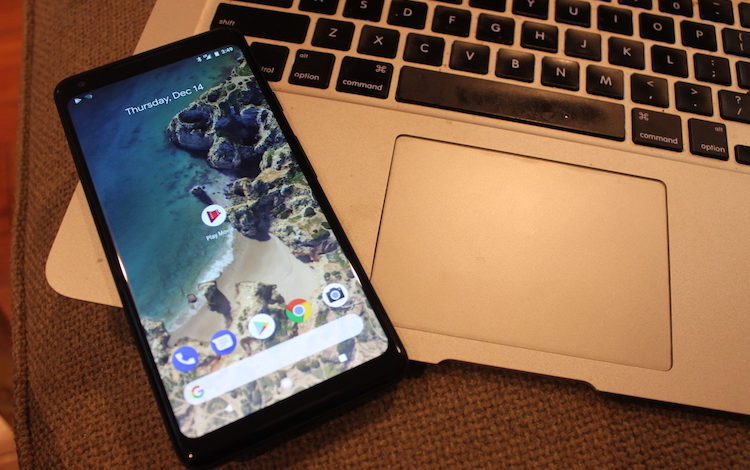Google I/O will be here before you know it, but there are already tons of details swirling around about Google’s next operating system, Android Q. The software’s official name may remain a mystery for several months, but a preview version of Android Q has already leaked. Developers are now busy sifting through the system and code to uncover what the 2019 Android update has in store for users. Here’s some of what we know so far.
Android 10
While we’ve been accustomed to calling the upcoming OS Android Q, there is a chance Google may use this odd letter in its tasty treat sequence as an opportunity to rebrand. There are hints in the leaked code that Android Q may instead be called Android 10. There is no indication of whether it will have a nickname like older versions. Even Android 9 Pie got a slight tweak from what was expected to be Android 9.0. That change could also be a hint of a smooth transition from 9 to 10. For now, we’ll continue to refer to the upcoming OS as Android Q.
Screen recording
Android Q may take screenshots to the next level with a screen recording feature. The feature may include a continuous notification to indicate that recording is in process. There will likely also be start, stop, and share buttons, as well as a voice-over option.
Sensor privacy setting
Android Q may include a mode that allows users to shut off sensors for the sake of privacy. Some wonder how this feature differs from Airplane Mode, but there are no further details about the function and purpose of this setting within the Android Q code.
Privacy chip
Android Q may include a function that will notify users if an app is using features that are susceptible to security breaches, such as location services or the microphone. Referred to as “privacy_chip” within the Android Q code, the notification may appear at the bottom of a device’s screen when it is triggered. There’s no word on whether this feature would be activate for all security related functions or if it would be an alert for a security breach on a device.
Emergency shortcut
Android Q may include a shortcut to the emergency dialer that can be found when users hold down a device’s power button to power down or restart. Typically, the emergency key is located on a device’s lock screen, but this feature would allow users to access emergency dialing even if they’re already logged in to a device. This would likely be beneficial for times when people are traveling and may not be familiar with local emergency numbers.
Notifications update
Android Q may also include settings that allow users to better manage their notifications. The current “Stop notifications” options may be changed to a simple “Stop.” Meanwhile, Android Q may introduce a “Show silently” option, which could potentially mute the sound on notifications even if a device’s volume isn’t silent. Users may also be able to categorize their notifications as low-priority and decide whether they should be shown or hidden.
WPA3 Wi-Fi support
Android Q may introduce support for the latest WPA3 Wi-Fi security protocol, which improves encryption on Wi-Fi networks and provides easier connections to IoT devices and Wi-Fi hotspots.
5G indicator
Android Q will likely include indicators that notify users when their device is running on a 5G or of 5G+ network. With some carriers already touting fake 5G indicators on smartphones that are not equipped for the network, a more legitimate method of determining 5G should be welcomed.
Physical activity recognition
Android Q may include a feature that allows devices to detect and recognize psychical activity. Such a feature might be beneficial for users that shy away from smartwatches and fitness bands.
Several manufacturers have their own health and fitness apps and services within their custom interfaces. Google also has its own fitness apps on the Play Store. However, there are no fitness apps native to Android in the same way you may find the camera app or calendar.
Having a stock activity tracker on Android would be a great base for developers to build on Android software instead of having to develop their own apps.
Reintroducing background location access
While many users have been anxious about location tracking on smartphones, Google has learned that trying to solve the problem has created even more problems. Older Android versions have restricted access to location services while apps are running in the background. This is why many apps like Google Maps now have a small pop up screen when users want to navigate away from the app to do something else. Android Q may now reinstate some of these permissions so that users can decide to give apps full, limited, or no background location permissions depending on the app function. Developers will also benefit from not having to figure out work arounds to allow their location-dependent apps to function properly.
Added security for external storage
Android Q may update permissions for external storage so users can set certain files as read only so that applications cannot modify files with write permissions. Google already has this function for internal storage. This could potentially prevent nefarious users attempting to hack a smartphone from being able to copy for modify information from a microSD card. Adding these permission options for external storage can be beneficial because many device owners use internal and external storage for the same purpose and may not realize that external storage is less secure.
Blocking clipboard access for necessary apps
Currently, all Android applications have access to a device’s clipboard for the sake of enabling copy and paste functions where they are needed. However, this can pose as a security risk, as users often copy sensitive information to their clipboards, such as passwords, names, and addresses.
Android Q may resolve this by requiring apps to have a have a manufacturer’s “signature” before they can have access to the clipboard. This could be a benefit as various third party apps that may have bugs and vulnerabilities cannot get access to a device’s clipboard.
Revert back to old app versions
Developers have discovered code within the Android Q preview suggesting the system may allow for users to revert back to an older version of third-party apps if they are not satisfied with the update. Issues after app updates are a common complaint for smartphone users across the market. For Android users, there are few solutions outside of waiting bugs to be fixed. Being able to downgrade updates on individual apps could be a welcome feature as it, in theory, wouldn’t interfere with the rest of the Android Q system. At the same time, it could be a risk if apps miss out on security updates due to running an outdated version.
Font, icon, and accent color customization
While Google is generally big on customization, its stock software is simple with few built in options for different looks. However, Android Q might add some new fonts, icon shapes, and accent colors to the system.
XDA developers discovered the code for several options, but many believe this feature may be less for users and more for manufacturers to have more built in options for creating unique themes for smartphones.
Several manufacturers offer theme libraries on devices within the custom software they run over Android. Adding these customization options into Android in the back end would make it easier for smartphone makers to deliver devices with more pure versions of Android.
Major Face ID update
Google may do a major overhaul of its facial recognition features in Android Q. Many smartphone makers are now implementing more advanced versions of Face ID, following in the steps of Apple and its 3D-enabled front camera.
Still, it was Android 4.0 Ice Cream Sandwich that introduced the world to facial recognition way back in 2011. The original Google feature didn’t really catch on, but now several Android manufacturers are working to make Face ID its primary or sole security and authentication option. Having advanced facial recognition support within the Android system could help device makers make the function as secure as possible.
Reports note that this may not be an indication of a Face ID feature on Google’s own Pixel devices for 2019.
Universal dark mode
Any time a new app or service gets dark mode, an angel gets its wings, but Android Q may make it so users can set apps to dark mode even if the app doesn’t support the feature natively. This feature allows programs to have a dark blue or black background to help users eyes adjust to dark or nighttime settings. So far, dark mode has been a feature implemented only in specific apps and services. For example, Twitter recently updated its desktop version with a dark mode toggle. Being able to manage dark mode directly from Android Q settings would be a welcome feature for many users.
Added permission controls
Android Q may increase the privacy controls within permissions settings for the upcoming software. Android P introduced a feature that allows user to accept or deny permissions when apps try to access sensitive functions, such as location tracking or the device microphone. Android Q may give users even more control by allowing them to set such functions to work only when the app is being used.
SIM lock
Many carriers already go out of their way to ensure that smartphone owners cannot use SIM cards from other networks on carrier-branded models. Android Q code suggests carriers may have added control over devices and how they work on mobile virtual network operator (MVNO) networks, in particular. MVNO networks are often smaller, off-brand service providers that use towers from major carriers to provide users with continuous service. This kind of SIM lock could prevent users from taking an unlocked phone to a different carrier even if the hardware is technically compatible with the network. Some MVNOs use multiple networks for service, and such a SIM lock could block service from certain “blacklisted” networks, which could ultimately slow down service on the user end.
With Android Q, carriers may also be allowed to block the function of the second SIM slot on dual-SIM phones if the first slot is not powered by an authorized carrier.
Desktop mode
There is also evidence that Android Q may have a desktop mode, which is already being compared to Samsung’s DeX platform with heavy groans. Samsung DeX started as a station that users could connect to a computer. Placing a handset into the DeX holder allows users to cast their smartphone interface onto a desktop. The latest Samsung DeX iteration allows users to connect a smartphone directly to a desktop with a USB-C to HDMI cable. However, developers have not yet been able to test out this feature with the leaked Android Q preview software.




